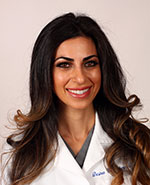
As dentists, we know that the foods we choose to eat can have a significant effect on our teeth. But we get so wrapped up in repairing teeth all day that we often forget to educate our patients about their diet and the effects it can have when it comes to their oral health.
The practice of prevention is one of the most successful relationship-building strategies doctors can employ with their patients. Patients are always interested in preventing disease and in stopping the progression of any decay or disease they may have.
You can build relationships with your patients by discussing a proper and balanced diet with them. Doctors who really spend time discussing all of the aspects of their patients’ health ultimately win over their attention and, most importantly, their trust, which will ensure returning patients and, hopefully, a referral!
The Dental Journey
When patients come to you, they are usually looking for you to solve a problem they are having. Patients don’t realize that they are seeing you as part of their dental journey. They feel that if you fix their problem, the issue won’t come up again. We want to remind our patients that nothing is permanent and that they have come to us to help them with their oral health.
Repairing teeth is only half of our obligation as dentists. If we repair Class V decay but do not solve the root of the problem—maybe the patient has xerostomia, for example—then we are only doing half of our job, because what we repaired can have recurrent decay.
Look at each patient’s first visit as an opportunity to get as much information as you can. Make sure to obtain information from them about their diet. Ask about their eating habits, including what and how often they eat, their drinking habits, and whether they smoke or not. Of course, also ask what medications they are taking, because it’s important to see if any of them will cause dry mouth.
Make sure when you are asking these questions that you explain why you are asking them so you don’t offend your patients. To make your patients even less defensive, give examples of things you used to do that created problems for you. After gathering your data, discuss the pros and cons of your findings.
The Perils of Dry Mouth
One component that we do not focus on enough is to remind our patients to stay hydrated. Water is so important for the body, and, of course, for the patient’s oral health. Water helps wash away food particles that may cling to teeth. It also helps form saliva, which is the mouth’s defense against decay.
Explain to your patients that saliva production helps inhibit the formation of plaque and that it helps neutralize acids in their mouth that would otherwise erode their tooth enamel. As an added bonus, let them know that staying hydrated will help them avoid bad breath! Hydration is especially important if your patients suffer from dry mouth.
There has been a big change in the United States with an increase in chronic pain management and an emerging population of elders seeking dental treatment. With all of our advances in dentistry, elders nowadays still have most of their teeth, whereas before, they had dentures. Due to the increase in levels of people seeking all kinds of medical treatment, the use of medications has greatly increased. Most of these medications contribute to dry mouth, causing rampant decay.
You have to see if your patients are willing to drink more water. Instead of burdening your patients and telling them to have 6 to 8 glasses of water a day, try to empower them by making them feel that they are doing something healthy for themselves to accomplish a goal. One tip that you can give your patients is to take a small sip of water each time they think about drinking water. Your patients will be surprised at the amount of water they end up drinking throughout the day.
A Smarter Diet
We, as dentists, know that certain foods are better for your teeth. Cheese, chicken, meat, nuts, and milk are thought to protect enamel by providing the calcium and phosphorus that’s needed to remineralize teeth.
Other healthy choices would include crunchy fruits and vegetables. These foods stimulate saliva flow to act as a buffer for acid. Fruits and vegetables also have a high water content, which dilutes the effect of the sugars they contain. And, let your patients know that they should consume acidic fruits as part of a larger meal to help minimize the acid from them.
Other common trends today include vegan diets and juicing fruits and vegetables. But I most often see rampant decay and lost teeth along with these diets. Although vegan diets can help detox the body, sometimes they play a number on the teeth, and patients don’t even realize it.
There’s an interesting theory that has gone around that cavities are signs that your body is detoxing through your teeth, and they are normal on a vegan diet. This is actually what some patients believe! You may want to tell your patients that if a tooth falls out, it’s not because their body is going to sprout a new, prettier one. It’s because something is very wrong.
Most vegans lose their teeth because they are not eating enough of the proper nutrients and because they snack more often and have more meals in a day. Each time they eat, the pH in their mouth decreases and creates an acidic environment. Encourage your patients to eat fewer meals to protect their teeth, and tell them to add more protein and fiber to their meals so they feel full longer.
Also, the sugar from fruits, especially in smoothies and juices, can lead to increased amounts of tooth decay and enamel erosion. Tell your patients that having a single fruit is not the same as juicing 8 fruits. Also tell them that when they extract the juice, they are not keeping the fiber, and their teeth are getting a full-blown acid attack. Diets like this can be very dangerous.
Instruct patients who have to eat or drink often to rinse with water after each meal to help neutralize the pH in their mouth. Additionally, tell them that amino acids like arginine, which is found in meat, poultry, fish, and dairy, help break down dental plaque and stop biofilms from forming. Plus, let your vegan patients know that foods like black beans and soybeans contain arginine, and they should include beans in their diet to help fight tooth decay. Finally, remind your patients that if their diet lacks certain nutrients, it will be more difficult for their tissues to resist infection.
Conclusion
One big practice builder is to show your patients that you are invested in them, not that you are just harvesting patients. We want to maintain them for their lifetimes, not simply fix their problem and have them move on. We all know that patient retention in the long run is the best practice builder.
With that said, make sure that along with your treatment plan for your patients, you incorporate a meal plan that includes a balanced diet. Remind your patients that there is a large connection between their overall health and their oral health. Don’t forget that a healthy outside starts from the inside!
 Dr. Desiree Yazdan completed research on enamel development and received her masters in craniofacial biology and doctor of dental surgery from the University of Southern California. She is an expert in cosmetic dentistry, taking pride in offering the finest in patient care and services to each patient individually. Dr. Yazdan’s expert training and professionalism have added to her keen eye for beauty. At the
Dr. Desiree Yazdan completed research on enamel development and received her masters in craniofacial biology and doctor of dental surgery from the University of Southern California. She is an expert in cosmetic dentistry, taking pride in offering the finest in patient care and services to each patient individually. Dr. Yazdan’s expert training and professionalism have added to her keen eye for beauty. At the
Center for Reconstructive Dentistry, Dr. Yazdan utilizes her expertise and passion to create smile transformation. Follow Dr. Yazdan’s Instagram page for daily smile makeovers and health and beauty tips by following @DrYazdan. For more information, call (949) 644-6988.
Related Articles
How to Convince Your Patients That Flossing Is Important
Clinicians Discuss Dentistry’s Showing on Recent “Best Jobs” Reports
A Low-Carb Diet Stops Periodontal Inflammation



